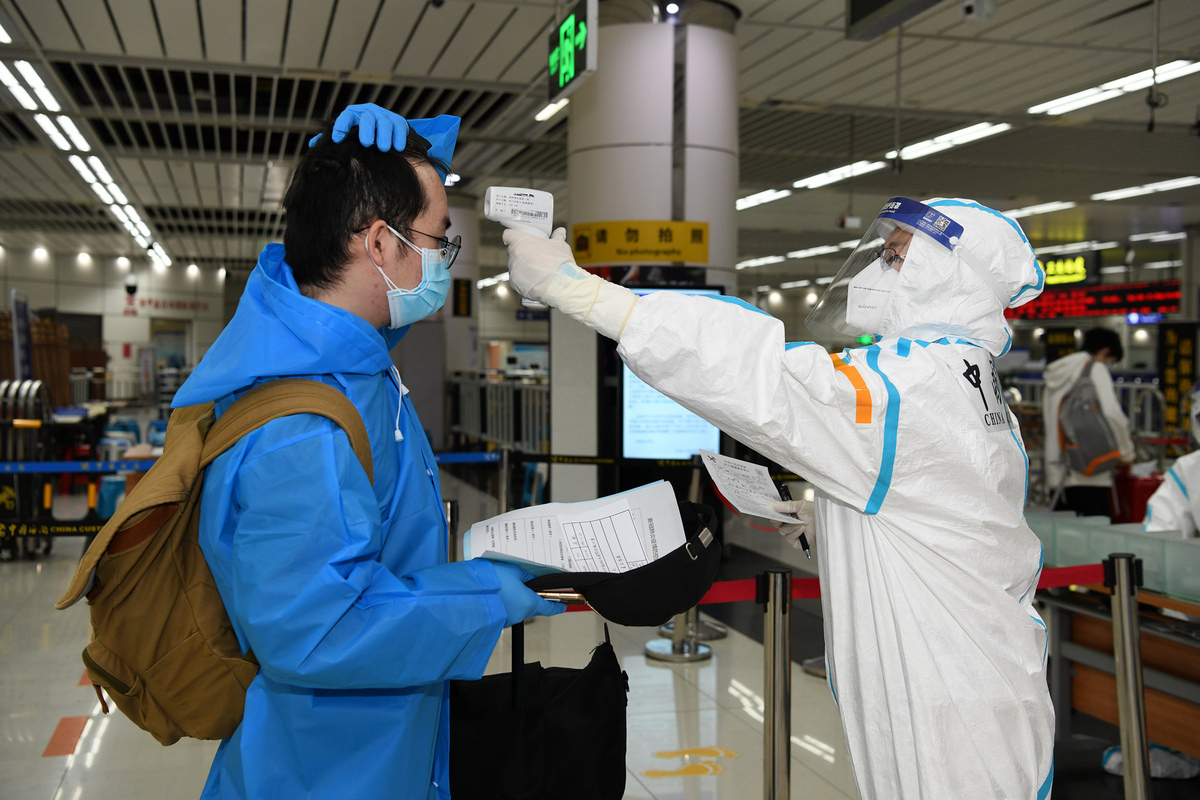The Chinese mainland reported 97 new imported cases of novel coronavirus disease on Saturday, the highest daily number since the start of the COVID-19 outbreak, a health official said on Sunday.

A customs worker checks an inbound passenger's temperature in Shenzhen, South China's Guangdong province, on April 3, 2020. (Photo: Xinhua)
The figure shows that the risks of imported cases continues to increase and putting pressure on the cities of entry, said Mi Feng, spokesperson of the National Health Commission.
Local authorities should prepare for long-term epidemic control and prevention against imported cases and further improve their detection and medical treatment capabilities, he said at a news conference.
The novel coronavirus pandemic has reminded people the importance of forming good habits to safeguard personal and public health, said Mao Qun'an, director of the commission's Department of Planning and Information.
Mao said the pandemic has taught everyone a profound lesson in epidemic prevention and control.
People need to form good eating habit, such as promoting individual serving, the use of serving spoons and chopsticks and not eating wild animals, he said at a news conference.
"We also need to be aware of the etiquette when coughing in public and form good sanitary habits, such as washing hands properly and cleaning the house regularly," Mao said.
Separately, Zhou Zhiqiang, deputy director of Department of Solid Wastes and Chemicals at the Ministry of Ecology and Environment, said all medical waste during the pandemic has been collected and disposed.
The country has the capacity to deal with 6,074 metric tons of medical waste as of Friday, up 24 percent from before the outbreak, he said, adding that the country has handled 252,000 tons of medical waste since Jan 20.


